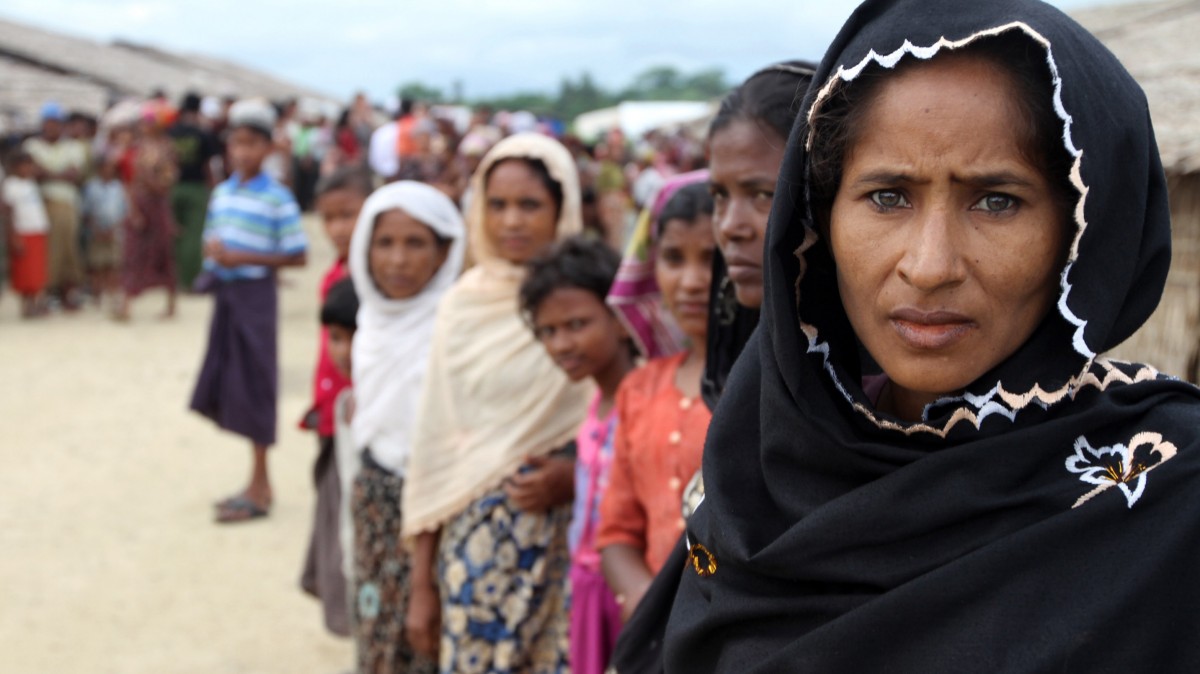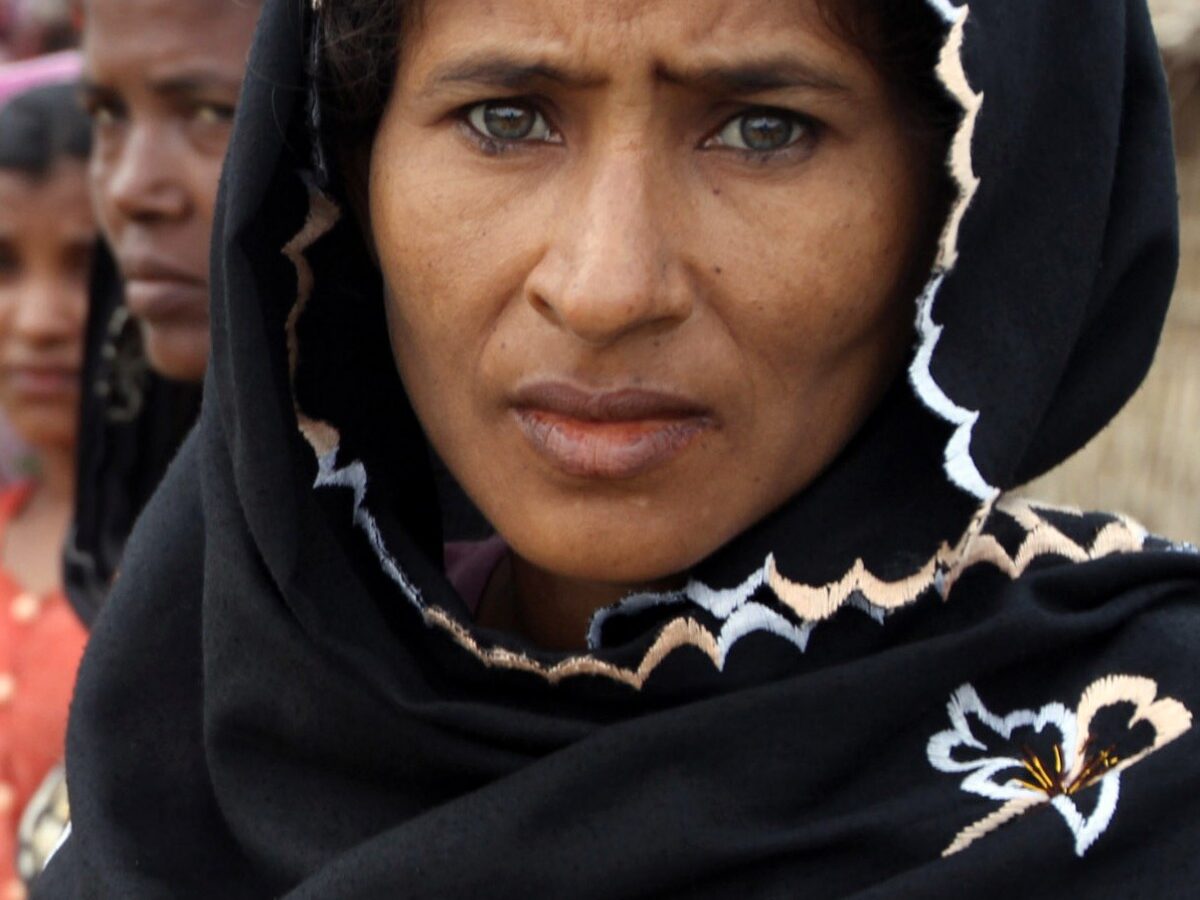
It’s been roughly three years since Myanmar’s junta decided to pull its country out of the dark ages and into the modern world, but that decision is proving to be a long and difficult process, as conflict between Muslims and Buddhists continues as the country takes up the chairmanship of a southeast Asian regional body.
It began when military authorities in the country released the pro-democracy leader Aung San Suu Kyi after she spent 15 of the last 21 years under house arrest, having been detained off and on from 1989 through 2010. By the next year, a new partly civilian government was sworn in and moved to release hundreds of political and other prisoners, giving them amnesty.
By 2012, the government signed a peace deal with rebels of the Karen ethnic group, which it had been fighting for years, and released the most important political prisoners it still held in its jails. Later, President Barack Obama visited the country. And the year ended when the government announced it would allow privately-owned newspapers.
As 2013 came and went, there were several other milestones, including reforms on public gatherings, but clashes between the government and several ethnic groups, including Muslims, and sectarian violence between Buddhists and Muslims continues to keep the country mired in human rights violations.
ASEAN Chairmanship opportunity
On Jan. 1, Myanmar took the chairmanship of the Association of Southeast Asian Nations. In 1997, when Myanmar joined ASEAN, the country’s membership was met with stiff resistance because of its awful human rights record under the oppressive military dictatorship. In 2006, Myanmar was encouraged to forfeit its chairmanship by ASEAN out of fear that the U.S. and other Western nations would boycott the ASEAN Regional Forum and the bad publicity this would garner.
Becoming chair of ASEAN helped Myanmar gain political legitimacy, and offers the state the opportunity to be viewed as a responsible member of the international community. Myanmar faces numerous challenges as it begins its chairmanship. Given its decades-long isolation, the decay of its educational system, and government constraints on intellectual inquiry, Myanmar is experiencing a huge human resources deficit, which will challenge the government to cope with the 1,100 meetings it is required to host as ASEAN chair. In addition to the shortage of skilled civil servants, Myanmar’s infrastructure is weak. Small portions of the country have electricity and even less have access to the Internet. “Brownouts” — rolling, temporary power outages — are a regular feature of daily life in Myanmar. But how successful the current or any future government is at tackling these problems remains unclear.
Conflicts in the country
The Karen people, the country’s second-largest ethnic group, fought an insurgency against the majority Burmans for decades. They signed a ceasefire with the government in January 2012.
Only two armed groups, representing the Kachin and the Palaung peoples, held out on signing peace agreements with the government. The central government signed a grand nationwide ceasefire agreement with every rebel group at the end of 2013.
Myanmar’s prior military governments, however, also signed ceasefire agreements, even if not so formally as the present one. And getting lasting peace agreements with the ethnic groups is an entirely different situation. That is the real prize that has eluded past governments.
However, fighting between Buddhists and Muslims are threatening the country’s reform process. Recent Buddhist mobs armed with machetes have attacked Rohingya Muslims, who mainly live along the border with Bangladesh, a Muslim nation. he Rohingya are viewed as illegal immigrants.
An attack in October on Myanmar’s coast was the latest in a string of horrible clashes between the two groups. The sectarian violence has claimed hundreds of lives, most of them Muslim, and threatens to overshadow the reform effort of President Thein Sein, a former army general.
Anti-Muslim sentiment has been stoked by a Buddhist political party that sees the Muslims as a xenophobic threat and a group of ultra-nationalist monks who say they are defending the country against an Islamist militant takeover, though there is little-to-no proof of this claim. The monks want a boycott of Muslim-owned businesses and have pushed legislation that would prohibit Buddhist women from marrying outside their religion.
Today, about 140,000 Rohingya reside in squalid displacement camps where work is scarce and movement restricted by armed police. Tens of thousands more have left Myanmar, paying smugglers to sneak them by boat to Malaysia or Thailand.
An agreement to reduce hostilities in Kachin State between the government and the Kachin Independence Organization has potentially opened the way for further peace efforts, according to the U.N. Refugee Agency, UNHCR. Some 100,000 people are displaced. International humanitarian organizations have direct access to internally displaced persons in government-controlled areas and local partners have played a vital role in ensuring that humanitarian assistance reaches IDPs in other areas.
Government releases child soldiers
Children have made up substantial numbers in the ranks of the national army. However, the government announced over the weekend it had been freeing minors from serving in the military.
Myanmar’s army has freed 96 children and young people from its armed forces, the U.N. said, hailing a “historic step” toward ending the use of child soldiers.
The move was the largest single release of child recruits since Myanmar’s new reformist government and its army signed a June 2012 pact with the U.N. on the issue. A total of 272 children and young people have been released over the past 18 months as the military has slowed its use of children, as well.
However, the practice has not yet completely been halted.
The release was “an historic step toward ending the recruitment and use of children by the Myanmar Armed Forces,” the U.N. Children’s Fund said in a statement.
Bertrand Bainvel, representative for UNICEF in Myanmar, said the move was “a strong commitment by the Myanmar government and the Tatmadaw to end a practice that steals the lives, hopes, and dreams of children.”
There are no verifiable figures on how many children are currently serving in Myanmar’s huge military.


